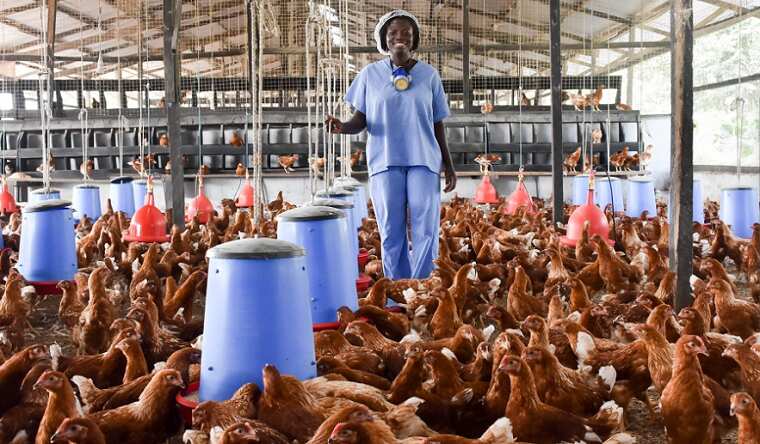Nigerian poultry farmers are struggling to stay in business as the rising cost of poultry feed continues to erode their profits.
Despite skyrocketing production costs, poultry processors are restricting how much farmers can charge for their products, leaving them with little room to adjust prices.
While feed prices have surged from N25,000 in December to N27,800, poultry processors have not significantly adjusted their buyback prices, forcing farmers to operate on razor-thin profit margins.
The crisis stems from Nigeria’s broader economic challenges, exacerbated by the removal of fuel subsidies in May 2023.
The policy led to a sharp rise in transportation and food prices, worsening inflation.
Additionally, the costs of essential poultry feed ingredients, such as maize and soybeans, have surged, significantly raising production expenses.
Although the Nigerian government banned poultry imports to protect local industries, the rising cost of production threatens the sustainability of domestic poultry farming.

Profit margins remain minimal, with farmers making an average of just N200 per bird—meaning a farmer raising 1,000 birds would only earn N200,000 after two months of production.
Due to financial strain, many farmers are cutting back on production, raising fears of a looming poultry shortage in the coming months.
The rising cost of poultry feed is linked to multiple factors, including supply chain disruptions, climate change, and Nigeria’s high inflation rate.
For most farmers, many of the raw materials used in feed production, such as maize and wheat, are either imported or sold at high local prices due to currency fluctuations. Some farmers prefer to export their produce rather than sell locally, as they earn more from foreign markets.
According to reports, the Chairman of the Poultry Association of Nigeria (PAN), Mojeed Iyiola, confirmed that the soaring prices of raw materials have made feed production more expensive.
The PAN requested government approval for direct maize imports, arguing that middlemen inflate costs, further straining farmers.
While independent poultry farmers struggle, processors—who slaughter, process, and distribute chicken—continue to enforce price controls, limiting farmers’ ability to set prices that reflect their production costs.
Some processors have exclusive agreements with feed suppliers, allowing them to buy feed at subsidised rates. They then resell the feed to contracted farmers at lower prices while locking them into fixed sales agreements.
To survive, some poultry farmers have turned to additional revenue streams, such as selling used feed sacks and poultry waste.
Poultry farmers urged the government to step in with subsidies or price regulations to stabilise the industry.
With nearly 50% of Nigerian poultry farmers already out of business due to soaring costs, urgent intervention is needed to prevent further industry collapse.


